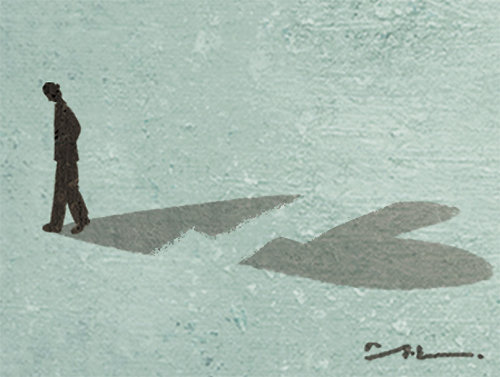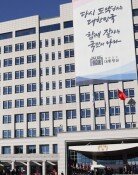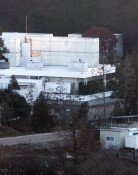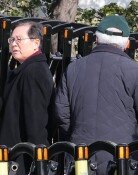Not to be lonely
Not to be lonely
Posted March. 09, 2019 08:29,
Updated March. 09, 2019 08:29

There is a question that is most difficult to answer in the world: “Why was I born?” There will be tens of thousands of answers to this single question and thousands of ways to explain the answers. When we are asked this question, we feel like we get smaller and very anxious. We feel as if we can survive only when we get the right answer. Hence, some people seek to find the answer in religion or God. Others pursue love, explore philosophy and mentally agonize. Most of us believe that there is the right answer to the question somewhere, and that we will eventually come to find it. Even a weed has “raison d’être,” and we humans feel that we should have the reason for our existence.
But then, several poets argue that the most difficult question to answer in the world is a question that is actually impossible to answer. The poets say that we can never find the reason we began our existence, adding that we should not have been born as humans in the first place. One of them is poet Choi Seung-ja.
Choi declines both the question and answer. When the hope of question and the happiness of answer disappear, only deep loneness comes to remain. Loneness is a kind of agony. One can never share this with others, nor can he or she seek help. Loneness is different from solitude, which is voluntary and positive, and hence is like punishment that crushes one’s soul. The portrait of the person who is suffering from this punishment is described in this poem.
The poet made her debut with a rule-breaking poem in 1979, and has since become a unique figure in the world of Korean poetry. What she has said was never said by someone else before. However, such praise will never be consoling the poet herself. Loneness is like solitary confinement. Because not a single word of consolation can be conveyed to appease the pain of a lonely person, we just can fully realize this.
Eun-Taek Lee nabi@donga.com







